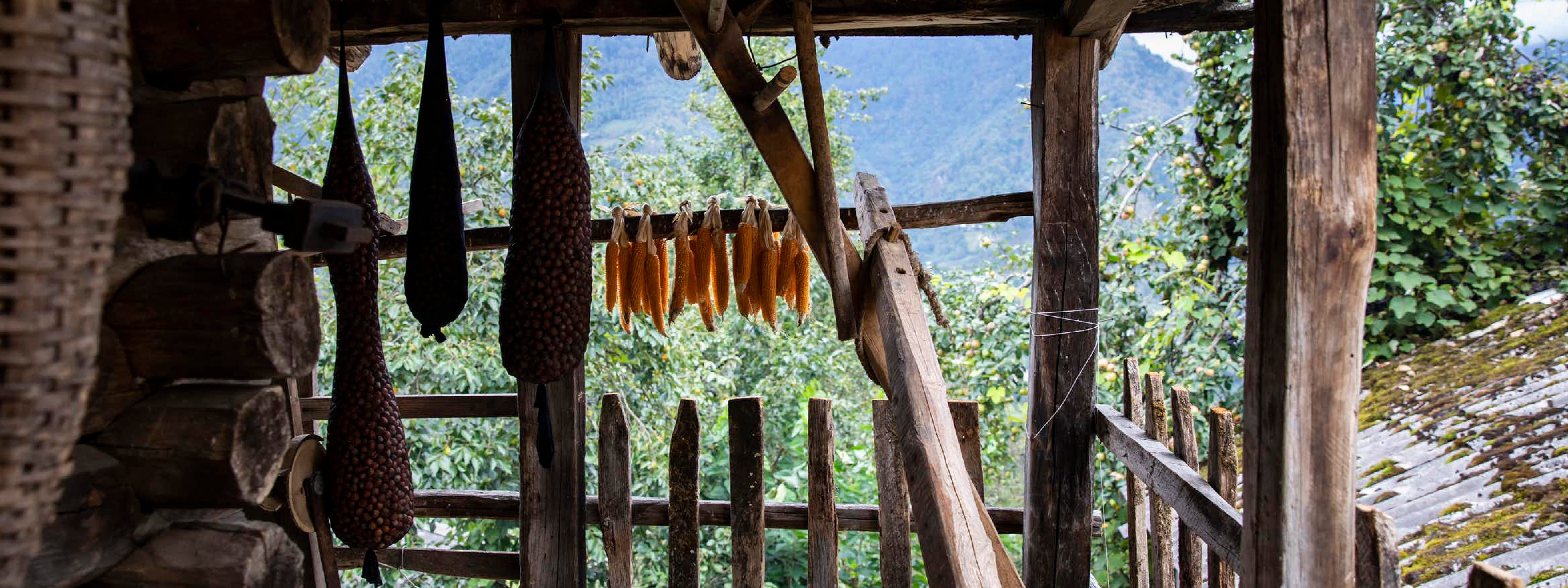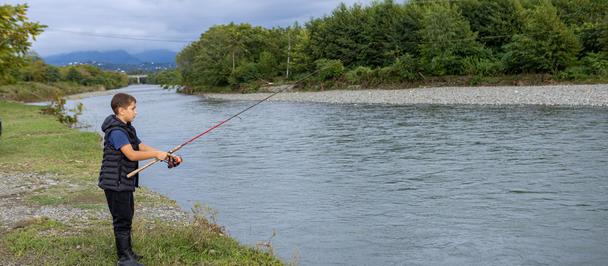Machakhela National Park boasts waterfalls, hiking tracks, and ecological guest-houses
Welcome to Paradise
October 19, 2018
Photo: Irakli Dzneladze/UNDP
“Machakhela National Park is a fantastic destination for tourists who are looking for an adventure. We are a quick 30-min drive from the coast. And a day trip to Machakhela can give you a nice break during a beach holiday.”
Nana Bauzhadze, a visitors’ specialist working at the Machakhela National Park, is proudly showing us the new hiking tracks that were opened for visitors this year. The park is Georgia’s newest protected area. Its famous twin waterfalls and breathtaking mountain views are now much easier to walk to than ever before.
Together with Mtirala and Kintrishi in Georgia and Turkey’s bordering Jamili Biosphere Reserve, the Machakhela is the latest in a chain of national parks created to conserve the unique Colchian rainforests.
Currently, the National Park absorbs thousands of tons of greenhouse gas emissions each month, while providing livelihoods for over 3,000 households.
“This area offers the unique opportunity to not only promote environmental tourism, but also to develop green local economy,” says Munkhtuya Altangerel, Deputy Head of UNDP in Georgia.
A rocky start
Yet when Machakhela National Park was first established in 2014, the situation was far from idyllic.
Over 3,000 residents of the gorge were openly unsupportive to the idea and complained about the associated new arrangements – including a regulated tree-cutting and the delineation of park boundaries, which they claimed restricted their access to agricultural land.
When UNDP and the Global Environment Facility (GEF) stepped in to assist the National Agency of Protected Areas in the sustainable management of the park, our first task was to create a bond between the communities and protected area and promote an understanding that people and forests can equally benefit one another.
Hospitality - the Georgian way
Pati Khinkiladze’s family owns a small family guesthouse in the Kveda Chkhutuneti village. Making hospitality a business venture was not a concept here – a legacy from the Soviet era when Machakheli was a restricted border zone closed for visitors.
“There is a lot that we still need to learn but things are moving fast. I am sure that this small guesthouse will turn into a nice hotel soon,” Pati says.
As part of the initiative, Khinkiladze’s family has installed solar panels which help to operate the water heating system. They also shifted from firewood to biomass for winter heating.
“We were amazed to find out that hazelnut shells can provide more heat than firewood. And it’s profitable too – now we spend 400 Lari (app. US$155) to what used to cost us 700 Lari (app. US$270),” Pati explains.
More than ten households in Machakheli gorge have already engaged with the renewable energy programme, paving the way for up to 100 families who will join in 2019. Those interested in opening family guesthouses have been trained in touristic management and received start-up support.
Green farms
Eco-farming is another area where Machakheli is now leading the way.
Small farmers received technical assistance and consultations in wine-making, beekeeping and other agricultural businesses. A livestock insurance programme and the instalment of electric fences helped reduce the loss of livestock and crops caused by predators. The area’s residents also received a push towards energy efficiency, reducing their annual expenses on heating in the process.
UNDP’s work in the Machakhela National Park and other protected areas is part of our wider assistance to Georgia in expanding access to green solutions and making environmental issues an integral part of development.
“We received 9,000 visitors in 2018 alone, but this is just the beginning,” Nana smiles. “Just looking around me, I can see clearly that this place has a much bigger potential.”
Now with all preparations underway, reaching that potential finally seems within grasp.
Photos
Photo: Irakli Dzneladze/UNDP
Photo: Irakli Dzneladze/UNDP
Photo: Irakli Dzneladze/UNDP
Photo: Irakli Dzneladze/UNDP
Photo: Irakli Dzneladze/UNDP
Photo: Irakli Dzneladze/UNDP
Photo: Irakli Dzneladze/UNDP
Photo: Irakli Dzneladze/UNDP
Photo: Irakli Dzneladze/UNDP

 Locations
Locations





